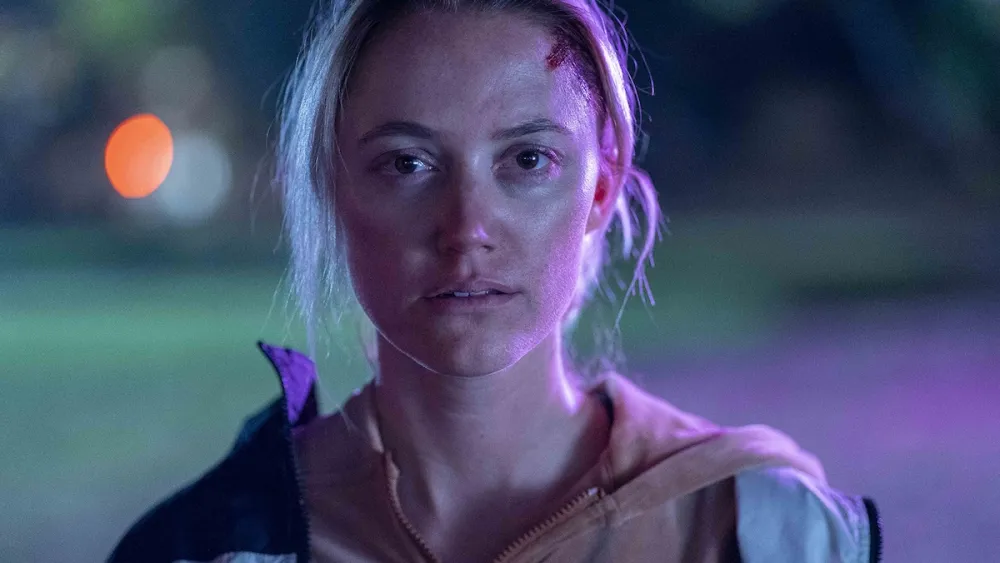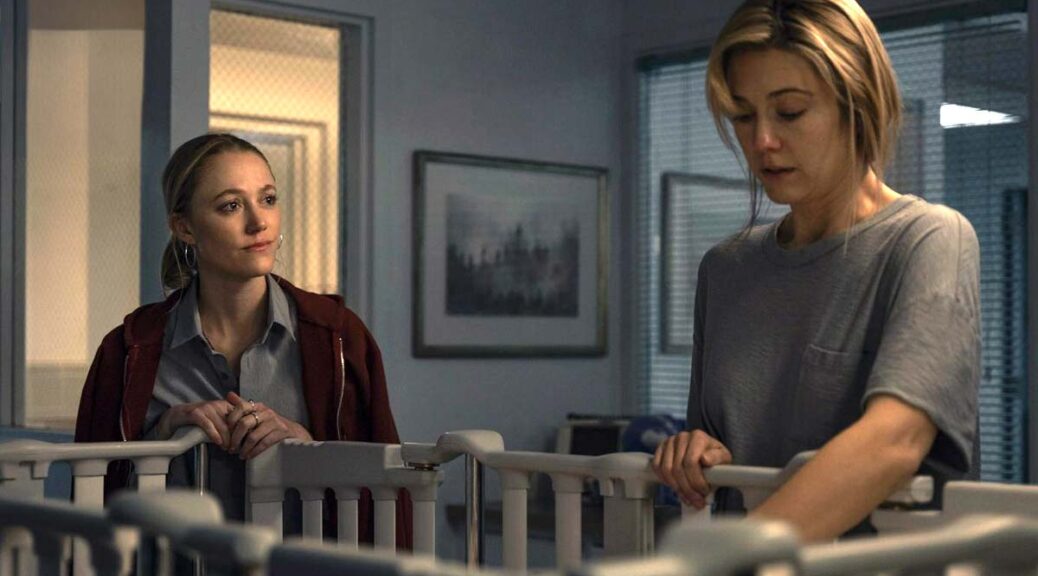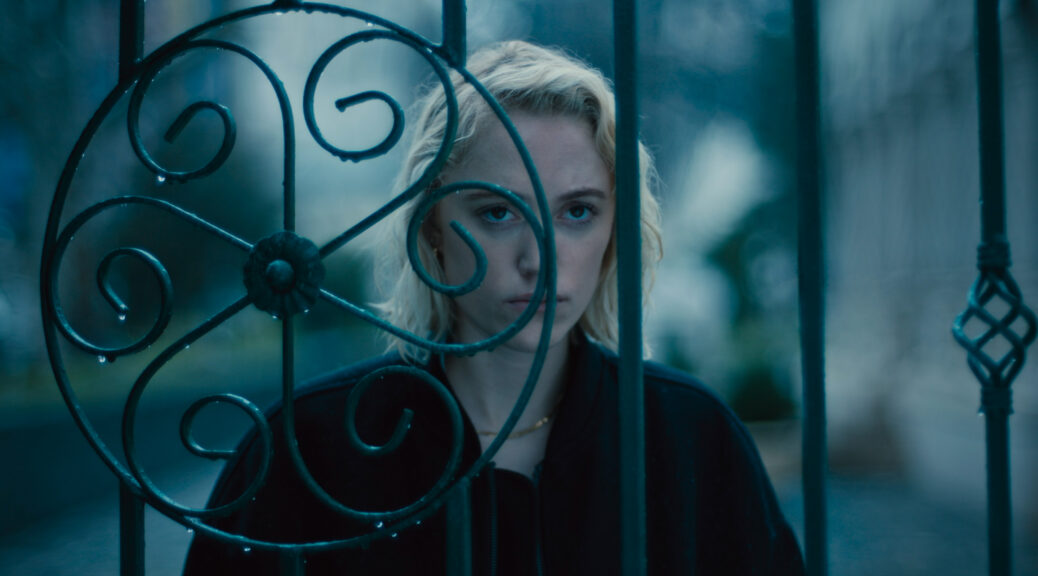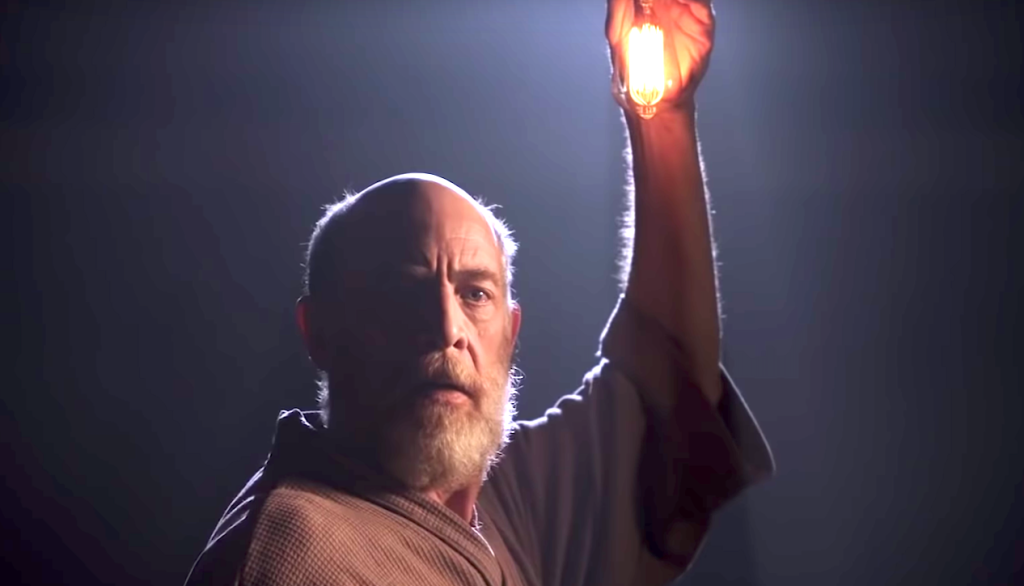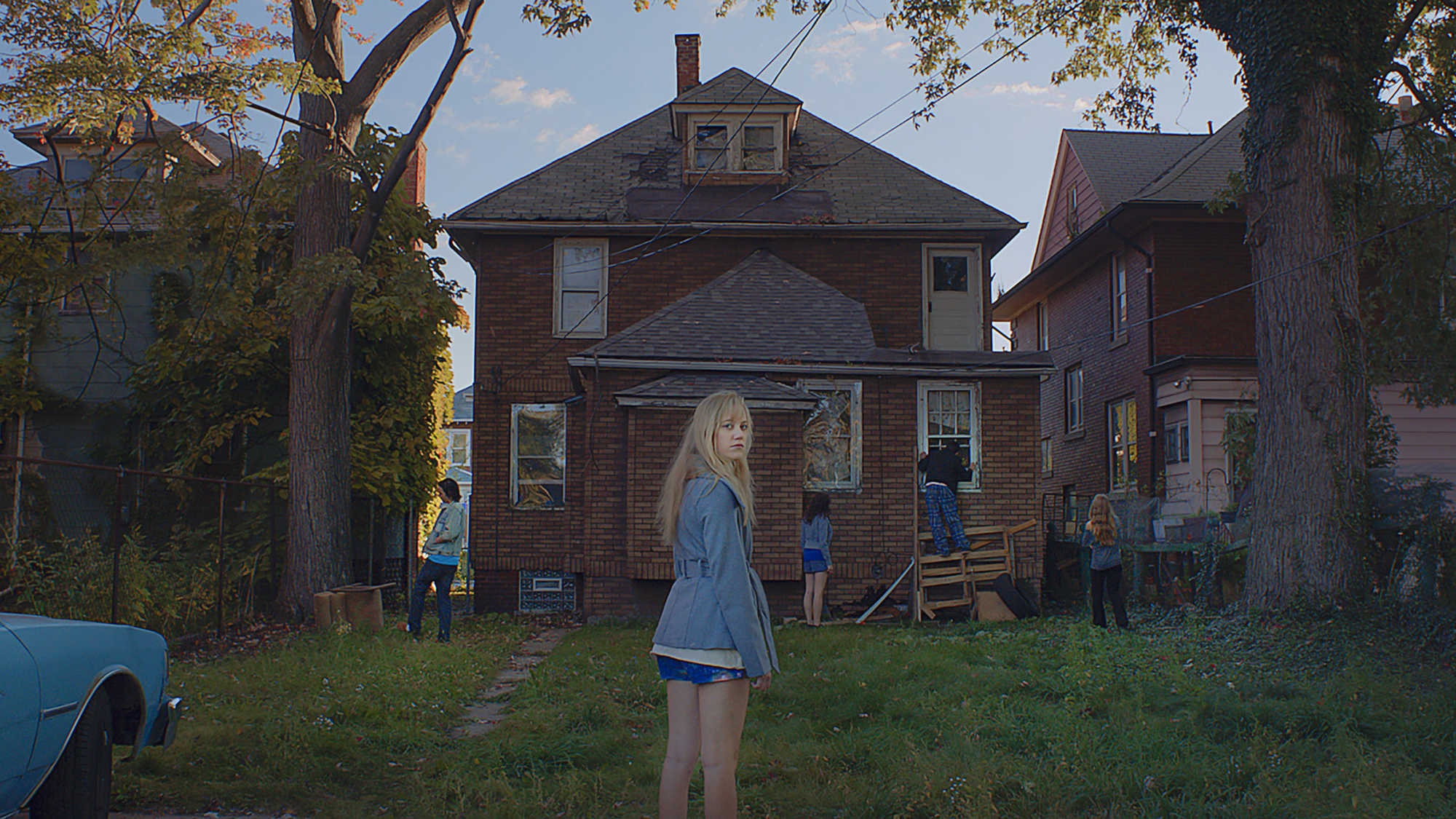In Cold Light
by Hope Madden
Maxime Giroux’s gritty thriller In Cold Light keeps you off kilter, moving from dreamy confusion to full-on sprint and back again.
Maika Monroe is Ava, and our first sprint with Ava ends in a violent drug bust. But after her two-year sentence, she finds herself back in Ponoka, Alberta. No fresh start, she’s clean but she’s otherwise ready to return to leading the smalltime drug operation she left behind. But they’ve moved on.
Her twin brother (Jesse Irving) tries to reason with her, tries to convince her to take the 40k he’s been setting aside for her while she did her time, but Ava can see that her once small operation has bitten off more than it can chew and is now dealing with real big, real bad guys.
She’s right, and those bad guys are the reason for more sprinting.
The story itself is somewhat simple, but Giroux, working from Patrick Whistler’s script, keeps your attention by revealing information as necessary, and by situating Ava’s world inside something lived-in but not ordinary. The context gives the story roots, authenticity, and opportunity for some pretty wonderful, dreamlike sequences.
Monroe’s sharp. The character of Ava is interior, speaking only as necessary, always thinking, weighting options. The performance feels caged, desperate but simultaneously controlled. Monroe’s long been a master of using stillness to manipulate a scene and an audience. She did it with precision in Watcher, among other films. Once again, Monroe uses an electric silence to say more than dialog could properly manage.
Giroux surrounds her with a game supporting cast. Troy Kotsur delivers a particularly layered performance, and a cameo from Helen Hunt is chilling. There’s not a weak link in the ensemble, and barely a stray or needless phrase in the script.
If anything, the film could have used maybe a few more sentences of exposition, especially as it closes. To leave so much up to interpretation invites the suggestion of plot holes, which In Cold Light doesn’t have, but it does leave more to the imagination than it probably should. Regardless, it’s a more than solid thriller and another impressive turn from Monroe.
